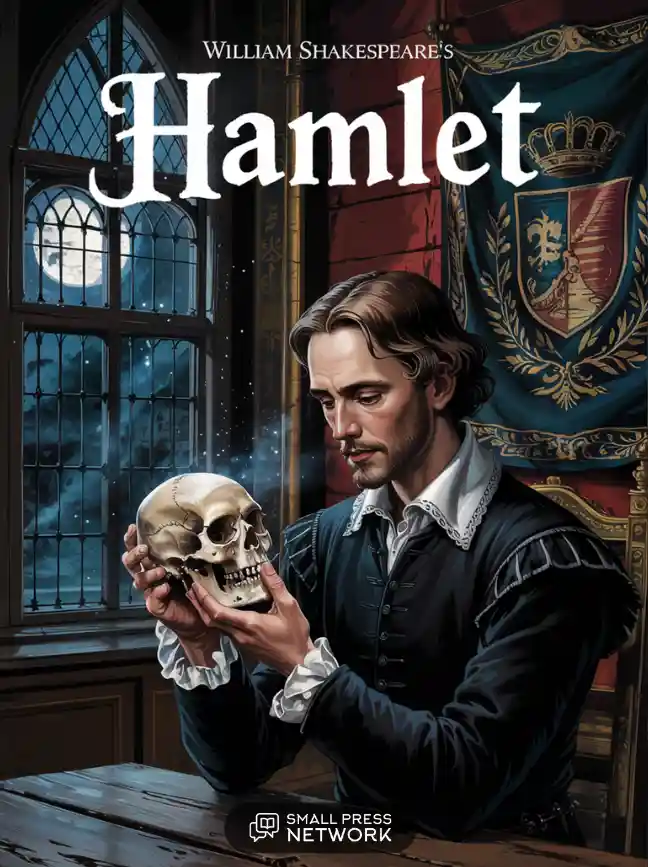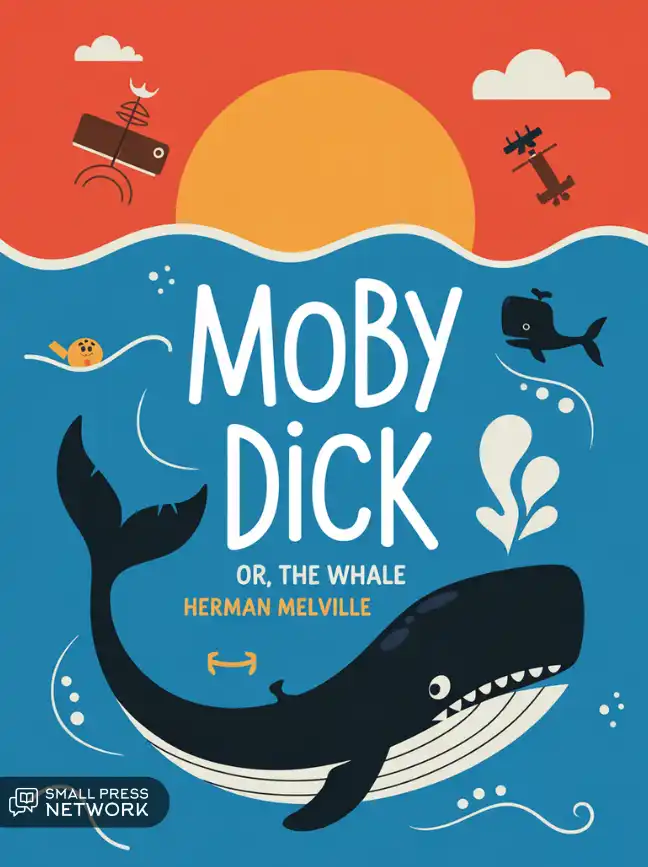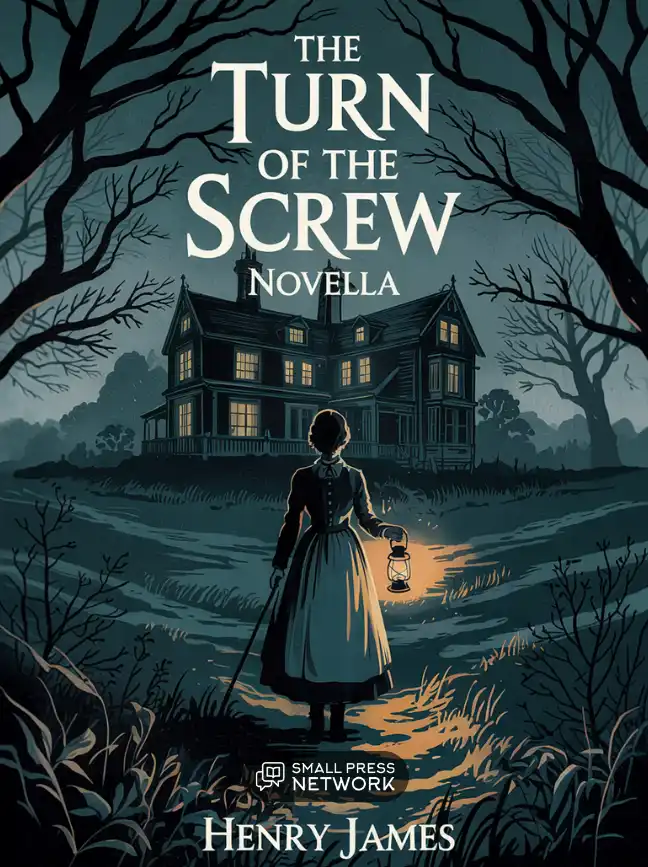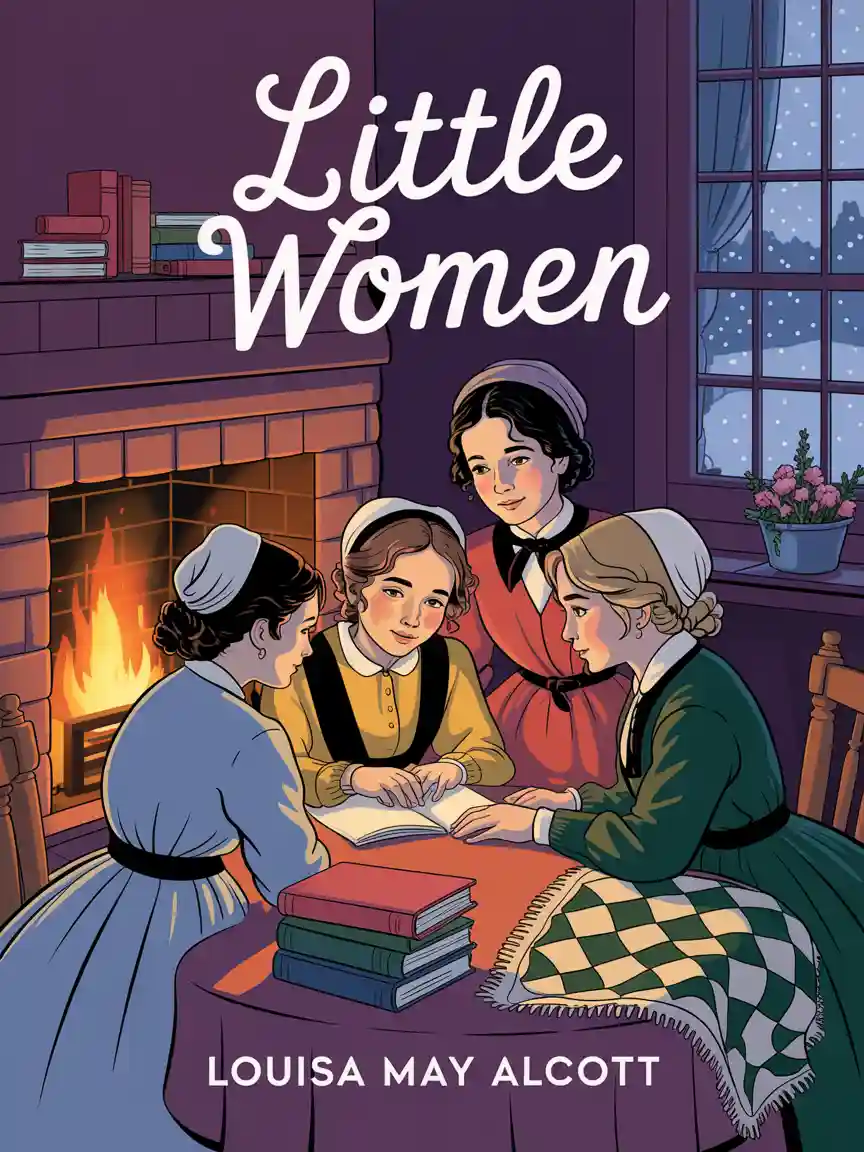A room in the castle.
HAMLET AND HORATIO enter .
HAMLET.—Enough of this, sir; now to the other. You remember all the circumstances well?
HORATIO.—Do I remember, my lord?
HAMLET.—Sir, there was a sort of struggle in my heart that would not let me sleep: I lay, as I thought, more uneasy than the mutinous sailors in their chains.55. Abruptly… and blessed be this abruptness! for our thoughtlessness, let us know well, sometimes benefits us while our deepest projects fail, and this should teach us that there is a divinity who shapes our destinies, whatever our will to outline them…
Note 55: (return) Among the trophies of the great Armada, iron bars with chains (bilboes) are still on display at the Tower of London, which were then used to chain unruly sailors together, and whose name the English had borrowed as a model from the Spanish city of Bilbao, famous for its steel. The slightest movement of one of the unfortunates thus shackled was bound to wake all the others.
HORATIO.—That is very certain.
HAMLET.—Suddenly then, I come from my cabin, my sea-coat rolled about me, and in the darkness, groping, seek them, come at will, seize their bundle, and at last retire to my chamber, whither I enter, and there, my fears forgetting propriety, I take the boldness to unseal their august commission, where I find, Horatio, O royal villain! a formal order, larded with all sorts of reasons, for the prosperity of Denmark, and England too—ha! ha! and with what evocation of scarecrows and werewolves, if I were alive!—an order at sight, without delay allowed, no! without taking so much as time to whet the axe,—an order to cut my neck.
HORATIO.—Is it possible?
HAMLET.—Here is the commission; read it more at leisure. But will you hear what I did?
HORATIO.—Yes, I pray you.
HAMLET.—Thus hemmed in on every side by ruffians,—I had not time to make a prologue in my head, before they had already begun the play,—I sit down, and compose a new commission. I write it with my best hand. I once esteemed, like our statesmen, that it was base to have a fine hand, and I labored much to lose that talent; but, sir, it did me good and faithful service then. Wilt thou know the object of what I wrote?
HORATIO.—Yes, my good lord.
HAMLET.—A pressing demand from the king,—considering England his faithful tributary; desiring that friendship might flourish between them like a palm tree; desiring that Peace might continue to wear its wreath of ears, and to rise on their borders in token of their good feelings,—and many such phrases as would amply make an ass’s load,—to the sole end, that the contents of this letter being immediately seen and known, without further deliberation long or short, he might cause the bearers of the said dispatches to be put to death suddenly, without even giving them time to commend themselves to God.
HORATIO.—But how was it sealed?
HAMLET.—Ah! that was what Heaven had also ordained; I had in my purse my father’s signet, which was a copy of the great Danish seal. I folded the writing into the form of the other; I subscribed it; I made the impression, and deposited it safely; the substitution was never suspected. Then, on the morrow, came our sea-fight, and what followed therefrom you already know.
HORATIO.—So Guildenstern and Rosencrantz go thither?
HAMLET.—Well, O man? Have they not amorously courted this embassy? Ah! I am far from having them on my conscience. Their ruin is of their own desire to insinuate themselves; it is dangerous for low men to interfere in the fencing, and between the fiery swords of two mighty adversaries.
HORATIO.—Ah! what a king we have here!
HAMLET.—Now, am I not in default? What thinkest thou? He that slew my king, and debauched my mother, he that slunk’d betwixt election and my hopes, he that cast his hook to take my own life, and with such treachery, is it not truly a good conscience to pay him with this hand? and is it not damnable to let this gangrene of our life go on further?
HORATIO.—He will soon have heard from England what issue the matter has had there.
HAMLET.—It will be short, the interval is mine, and a man’s life does not hold time to count to two. But I am much grieved, dear Horatio, that I have forgotten myself to Laertes, for in the picture of my cause I see a likeness of his; I will seek his favor. Surely it was the boasting of his complaint that drove me to this height of giddy fury.
HORATIO,—Hush! Who comes here?
(Osrick enters.)
OSRICK.—I offer your lordship my best compliments of welcome on your return to Denmark.56 .
HAMLET.—I humbly thank you, sir… Do you know this gnat?
HORATIO.—No, my good lord.
HAMLET.—The better thou art, for there is vice in knowing him. He hath much land, and very fruitful. Let the lord of beasts be himself an animal, and this one shall have his manger set at the king’s table. He is a parrot indeed; but, as I tell thee, he can go far on his own mud.
OSRICK.—My gracious lord, if your lordship were at leisure, I had something to convey to him from his majesty.
Note 56: (back) This scene is a satire on the foolishness of euphuism, the false delicacies that were fashionable in Shakespeare’s time in the language of courtiers. Osrick is, in truth, a precious ridicule, and it is in the language of our precious people of the 17th century that we have sought the translation of this scene. It is doubtless necessary that the fools of all times have, like the fine wits, the privilege of meeting, for we have found, in the archives of the jargon mocked by Molière, not only the means to imitate the general appearance of the jargon mocked by Shakespeare, but often even the means to translate its most singular researches to the letter.
HAMLET.—I will receive it, sir, with all diligence of mind…. Put your hat on where it belongs; it is made for the head.
OSRICK.—I thank your lordship; it is very hot.
HAMLET.—No, believe me, it is very cold. The wind is from the north.
OSRICK.—Indeed, my lord, it is rather cold.
HAMLET.—And yet, methinks, it is quite stifling, quite hot; or, perhaps, my complexion….
OSRICK.—Furiously, my lord! Quite stifling,… as if… I cannot tell how much57. My lord, His Majesty has ordered me to inform you that He has placed a great bet on your head. This, sir, is what it is about…..
HAMLET, urging him to put on his hat. —I beg you, do not forget that….
OSRICK.—No, my good lord; for my own convenience, I swear to you… Sir, there has lately arrived at court Laertes, a most accomplished gallant man, believe me; he has a hundred perfections that marvellously raise him from the common run; he is of great gentleness in dealing, and makes a great figure in the world. In truth, to speak of him according to the sentiments that are due to him, he is the Map and Almanac of Gallantry58 , because you will find in him the extract of all merits59 that a gallant man loves to contemplate.
Note 57: (return) One might say the Greek of Juvenal: “If, in the time of fog, you ask for a little fire, he puts on his cloak; if you say: I am suffocating, he sweats.”
Note 58: (back) Osrick speaks here of Laertes almost as Ophelia spoke of Hamlet (Act III, Sc. I, towards the end). Compare the two passages. Ophelia’s language is hardly less subtle, hardly less singular; but what a difference of accent! There, there is passion and poetry; here, there is only politeness of etiquette and laborious refinement of a banal exaggeration. One feels that Ophelia would not speak thus of anyone else; Osrick would speak thus of everyone. In saying that Laertes is the Map and the Almanac of Gallantry, to say that he is the model of courtiers, Osrick alludes to those manuals of fine manners and fine style, in which euphuists and précieuses delight. Similarly, in Somaize’s comedy, Les Véritables Précieuses (sc. IV), Isabelle says: “See that he has well sucked up all that the Carte de Coquetterie has been able to dogmatize in him of tenderness!” and Somaize again, in the Dictionnaire des Précieuses , cites the Almanach d’Amour as showing clearly that the author loves and succeeds well in gallantry.
Note 59: (return) Somaize, Dictionnaire des Précieuses : “Mademoiselle une telle has a lot of wit; mademoiselle une telle is an extract of the human spirit .” We could indicate a reference on each line, for turns of phrase as well as for words; but the reader would quickly tire of it, and rightly so.
HAMLET.—Sir, his portrait suffers no want of praise to be drawn by you. Not that I do not know, that if one were to take it upon oneself to make the anatomy and whole inventory of this gentleman, if one may so express it, one would not fail to stupefy the arithmetic of memory, though one did but sail behind him, and seek the wind here and there by his swift wake.60. But without lying or pushing him too far into the favorite rank of our thought, I hold him to be a soul of the first order, and the concert of his qualities has so much that is strange and unheard of that, to give the truth of the thing, he has his equal only in his mirror, and any other who would like to resemble him would only double his shadow, nothing more.
Note 60: (return) This is the only euphuism in this scene that we have not found in the language of the precious; but who would be surprised to see the English more maritime than we are, even in the old patois of their courtiers? The word in the text is technical, to yaw ; in French: to give veers , that is to say, alternating movements of rotation, from right to left and from left to right, that the wind or a considerable current imprints on the front of a ship.
OSRICK.—Your lordship speaks of him, certainly.
HAMLET.—But what business, sir? Why do we capuchin this gallant man with the undue rudeness of our words?
OSRICK.—Sir?
HORATIO.—Is it not possible to understand one another in another language? You can, sir, I am sure.
HAMLET.—What is the purpose of this gentleman’s quotation?
OSRICK.—Of Laertes?
HORATIO.—His purse is already empty: he hath spent all his golden words.
HAMLET.—Yes, sir, of him.
OSRICK.—I know you are not ignorant….
HAMLET.—You know that, sir? I wish you did. And by my faith! yet, if you did, it would prove little in my favor. Well, sir?
OSRICK.—You are not ignorant of the great merit which Laertes shows….
HAMLET.—I dare not admit that, for fear of entering into comparison with him in this great merit; for a man knows nothing well of a man but what he knows of himself.
OSRICK.—I speak only, sir, of the merit he shows for his weapon; but from the estimation in which he is held, he has no equal in his kind.
HAMLET.—What is his weapon?
OSRICK.—The rapier and the dagger.
HAMLET.—These are two of his weapons; but well!
OSRICK.—The king, sir, has wagered against him six Barb horses; and he himself has put up for stake, as I understand it, six French rapiers and daggers, with all their fittings, namely: belts, pendants, and the rest. Three of these equipages are, in honour, very precious for taste, admirably fitted at the hilts; equipages of the utmost delicacy and the most ingenious workmanship!
HAMLET.—What do you call equipages?
HORATIO.—I thought you’d want some gloss on the margin before you got to the end.
OSRICK.—The equipages, sir, are the pendants.
HAMLET.—The word would be more cousin to the thing, if we had a cannon at our side61 ; I would like the pendants, until then, to remain pendants. But let us continue: six Barb horses against six French swords, their fittings, and three ingeniously crafted carriages, that is the French wager against the Danish. But why was this stake put, as you call it?
Note 61: (return) Montaigne also says: “Is not naivety, according to us, akin to stupidity?” instead of neighboring, similar . As for the crew of the cannon, it was the word consecrated in the time of Rabelais, since it is said (book IV, chap. XXX) that Quaresme-Prenant had thoughts like a flight of starlings and repentance like the crew of a double cannon.
OSRICK.—The king, sir, hath wagered that Laertes, in twelve passes between you and him, shall not win you by three boots; Laertes hath wagered for nine out of twelve, and the test shall be made at once, if your lordship will favour me with an answer.
HAMLET.—What! even if I answer no?
OSRICK.—I mean, my lord, if you consent to play a part in this trial yourself.
HAMLET. Sir, I will walk here in this hall; if it please his majesty, as it is my recreation, let foils be brought, let this gentleman be willing, let the king be of his purpose, and I will win his wager, if I may; but if not, I shall gain nothing but shame and bad boots.
OSRICK.—Shall I make you speak thus?
HAMLET.—In that sense, yes, sir; but with such flourishes as your skill shall dictate.
OSRICK.—I commend my services to your lordship.
(He leaves.)
HAMLET.—All yours, all yours. He does well to commend himself; there is no other mouth that would take it.
HORATIO.—The starling goes running, still in his shell.
HAMLET.—He? He complimented his nurse’s breast, before he began to suck. Such are they, he and many others of the same sort, whom I see this sparkling and frothy age doting on. They have only taken the tone of the day and the appearance of fashionable courtesy: it is like a collection of little rubrics skimmed here and there, that make them fashionable at all times, by the most evaporated and stale judgments; but blow on them only, as a test, and at once those bubbles burst.
(A lord enters.)
THE LORD.—My lord, his majesty has recommended himself to you by young Osrick, who has reported to him that you await him in this hall. He sends to know whether you still please to assault with Laertes, or whether you will take longer delay.
HAMLET.—I am steadfast in my resolutions; they follow the king’s pleasure: his convenience has but to speak, mine is ready to reply. Now, or some other time, provided I be as ready as now.
THE LORD.—The king, the queen, all will come.
HAMLET.—And they shall be welcome.
THE LORD.—The queen desires from you some kind compliment for Laertes, before she falls into custody.
HAMLET.—She gives me good advice.
(The lord leaves.)
HORATIO.—You shall lose that wager, my lord.
HAMLET.—I think not. Since he went to France, I have continually practiced myself; with the advantage he gives me, I shall gain….. You cannot believe how bad things are there, with my heart. But, no matter!
HORATIO.—Yet, my good lord—
HAMLET.—It’s pure nonsense, but it’s a sort of presentiment that might trouble a woman.
HORATIO.—If your soul feels any dislike, obey it; I will warn them of their coming hither, and tell them you are not well disposed.
HAMLET.—Never mind; we defy the omens. There is a special providence for the fall of a sparrow.62 If the time has come, there is no longer any need to wait for it; if there is no longer any need to wait, there is nothing to be done about it. If it has not yet come, it will come one day or another. The thing is to be ready. Since no man knows what he is leaving, what does it matter to leave sooner!63
Note 62: (return) Gospel according to Saint Math, x, 29.
Note 63: (return) That is to say: What does it matter if we die young, since we do not know what would happen to us if we lived longer!
(Enter the king, the queen, Laertes, the lords of the court, Osrick, servants carrying the foils.)
KING.—Come, Hamlet, come, and let me place this hand in yours.
(The king places Laertes’ hand in Hamlet’s.)
HAMLET. Pardon me, sir. I have offended you; but pardon me as a gentleman that you are. Those here know, and you must needs have heard, how I was afflicted with a cruel disorder of mind. Whatever I did, whereby your heart, your honor, your severity could be rudely aroused, I here proclaim to be madness. Did Hamlet offend Laertes? Hamlet? No, never. If Hamlet be taken from himself, if, when he is no longer himself, he offends Laertes, then it is not Hamlet who offends; Hamlet disowns it. Who then offends? His madness? and if so, Hamlet is of the offended party; poor Hamlet’s enemy is his madness itself. Sir, before this audience, allow my disavowal of all evil intention to absolve me in your generous soul, as if, shooting my arrow over the house, I had wounded my brother.
LAERTES.—I have full satisfaction for my heart, whose grievances in this matter should most strongly urge me to revenge. But on the ground of honour, I hold myself in reserve and will not reconcile, until I have, from some arbiters of known honour, the sentence and precedents of peace that must keep my name from all stain; but in the meantime I receive the friendship you offer me as true friendship, and I will not fail it.
HAMLET.—I will gladly embrace this assurance, and fairly dispute this brotherly wager…. Give us the foils. Come.
LAERTES.—Come…..One for me.
HAMLET.—Aye, Laertes, a foil, and I will be your breastplate;64 embedded in my clumsiness, your skill, like a star in the darkest night, will emerge with all its fire.
Note 64: (back) The word in the text foil , means foil or sheet of metal, setting of a precious stone , anything that frames or highlights, anything that creates contrast; hence the play on words of Hamlet and the image that follows.
LAERTES.—You mock me, sir.
HAMLET.—No, I swear by my right hand.
KING.—Young Osrick, give them the foils.—Cousin Hamlet, you know the wager?
HAMLET.—Very well, my lord. Your grace hath laid the greater stake on the weaker side.
KING.—I fear nothing: I have seen you both at work. But as he has made progress, we have gained an advantage.
LAERTES.—This is too heavy; let us see another.
HAMLET.—This fits me; are they all of length?
(They prepare for the assault.)
OSRICK.—Yes, my good lord.
KING.—Put the wine-flasks on this table. If Hamlet strike the first or second, or return the third, let all batteries fire: the king will drink to Hamlet, wishing him less breath, and will throw the pearl of his wedding ring into the cup,65 a pearl richer than those in the crown of Denmark for four reigns. Give me the cups, and let the kettledrums say to the trumpets, the trumpets to the gunners outside, the cannons to heaven and heaven to earth: “Now the king drinks to Hamlet.” Come, begin.—And you, judges, keep an attentive eye.
Note 65: (return) In memory of Cleopatra, it was a fashionable extravagance to throw a pearl into the cup before toasting a toast. “There,” says a comic character, “sixteen thousand pounds sterling gone in a single gulp, instead of sugar. Gresham drinks this pearl to the queen, his mistress.” It was also claimed that pearls gave a cordial flavor to the liquor in which they dissolved; and it was this double pretext that the robbery seized to poison the cup intended for Hamlet. A few words have been added here to the text; the reason for this will be seen on page 280, note 1.
HAMLET.—Come, sir.
LAERTES.—Come, my lord.
(They begin the assault.)
HAMLET.—One.
LAERTES.—No.
HAMLET.—Judge of that.
OSRICK.—A boot, a very conspicuous boot.
LAERTES.—Very well: let us begin again.
KING.—Wait, let me have a drink. Hamlet, this pearl is yours; to your health! Give him the cup.
(The trumpets sound, the cannon fires.)
HAMLET.—I will finish this pass first: lay the cup aside. Come. ( They begin again .) One more: what say you?
LAERTES.—Touched, touched, I confess.
THE KING.—Our son will win.
THE QUEEN.—He is fat and short of breath.66 Come, Hamlet; take my handkerchief, wipe your brow. The queen drinks to your success, Hamlet.
Note 66: (back) It is believed that these words allude to the obesity of the actor Burbage, famous in the role of Hamlet. Burbage’s epitaph says, in fact: “You will no longer see in him the young Hamlet, though short of breath, crying for vengeance for the death of his beloved father!” Thus in, The Miser (Act I, Series IV), Molière has Harpagon say: “There is a rascal of a valet who bothers me greatly, and I do not like to see that lame dog,” because Béjart the younger, entrusted with the role of La Flèche, was lame.
HAMLET.—Dear madam….
THE KING.—Gertrude, don’t drink.
THE QUEEN.—I will drink, my lord. Excuse me, I pray you.
THE KING, aside. —It is the poisoned cup; it is too late.
HAMLET.—I dare not drink yet, madam. Presently.
THE QUEEN.—Come; let me wipe your face.
LAERTES.—My lord, now I will touch him.
THE KING.—I don’t think so.
LAERTES, aside. —And yet it is almost against my conscience.
HAMLET. Come, to the third, Laertes! You are only playing. Pray push with your best; I fear you will treat me like a boy.
(They start again.)
LAERTES.—Do you believe it? Come!
OSRICK.—Nothing on either side.
LAERTES.—Now to you.
(Laertes wounds Hamlet, but in this conflict they change foils, and Hamlet wounds Laertes.)
THE KING.—Separate them; they are inflamed.
HAMLET.—No; let us begin again.
(The queen faints.)
OSRICK.—See the queen! Oh!
HORATIO.—They are both bleeding. How do you fare, my lord?
OSRICK.—How are you, Laertes?
LAERTES,—Well! Osrick, like a woodcock caught in its own trap. I perish justly by my own treason.
HAMLET.—How is the queen?
THE KING.—She fainted when she saw them bleeding.
THE QUEEN.—No, no; the cup, the cup! O my dear Hamlet! the cup, the cup; I am poisoned!
(She dies.)
HAMLET.—O villain! Ho! shut the door! Treason! Let the treason be discovered!
(Laertes falls.)
LAERTES.—Here it is, Hamlet. Hamlet, thou art dead; no remedy in the world can do thee good; thou hast not half an hour of life in thee; the treacherous instrument is sharpened and poisoned in thy hand. The foul device hath turned against me; behold, I lie here, never to rise. Thy mother is poisoned. I can bear no more. The king, the king is guilty!
HAMLET.—The poisoned point too! Then, venom, do your work!
(He strikes the king.)
OSRICK AND THE LORDS.—Treason! treason!
THE KING.—Oh! defend me again, friends, I am only wounded.
HAMLET.—Here, you incestuous, murderous, damnable king, finish this drink! Is your fair ring in there? Well, go to my mother.67
(The king dies.)
Note 67: (return) The text reads:Drink this potion. Is your union here? Follow my mother .Any pearl of rare beauty, which one might believe or claim to be unique in its kind, was called a union . But here, very probably, by a final sarcasm quite in keeping with his habits of speech, Hamlet equivocates on the other meaning of union ; what he seems to us to imply could be developed thus: “Is this your pearl, the poisoned pledge of your feigned union with me? Well then! let it reunite you with your wife now!” Our French word alliance , with its second familiar meaning wedding ring , lends itself to an equivalent implication which has only caused us a very slight addition, above (vp 277, note 2); by admitting and explaining it, the translator thought he could allow himself to do so.
LAERTES.—He is served according to his merits! He is poison prepared by himself… Exchange pardon with me, noble Hamlet; let not my death and my father’s fall on thee, nor thine on me!
(He dies.)
HAMLET.—Heaven forgive thee! I follow thee. I am dead, Horatio. Wretched queen, farewell…! You, whom I see pale and tremble at this blow, you who are, in the midst of such a spectacle, but mute or an audience, if I had time!… for death is a fierce usher, and strict in signifying his decrees.—Oh! I would tell you… but, let that go… Horatio, I am dead, you live; set Hamlet and his cause straight, in the eyes of the malcontents.
HORATIO.—Don’t count on it; I’m more of the old Roman than the Dane. There’s a little liquor left here.
HAMLET.—If thou art a man, give me the cup. Let it go, by heaven! I’ll have it… O God! Horatio, what a wounded name shall outlive me, if things thus remain unknown! If thou ever bore me in thy heart, leave thee a while longer from the highest bliss; stay in this cruel world breathing a sorrowful air, to tell my tale, ( A march sounds in the distance; cannons are fired behind the stage . ) What is this warlike noise?
OSRICK.—Young Fortinbras, returned from Poland a conqueror, sends this warlike salvo to the English ambassadors.
HAMLET.—Ah! I die, Horatio! The strong poison quite breaks my spirits; I cannot live to hear the news from England. But I predict the election will settle on Fortinbras: he has my dying voice; tell him this, with the circumstances, great or small, that have occasioned—the rest belongs to silence.
(He dies.)
HORATIO.—Thus breaks a noble heart. Sleep well, dear prince; and let swarms of angels sing to bear thee to rest! ( A march behind the stage . ) But why comes the drummer here?
(Enter Fortinbras, the English ambassadors and others.)
FORTINBRAS.—Where is this spectacle?
HORATIO.—What is it you wish to see? If it be unhappiness or astonishment, look no further.
FORTINBRAS.—Here is a slaughter that cries: no quarter! O proud death, what is the banquet that is prepared in your eternal cavern, that you have struck down so many princes with a single bloody blow!
FIRST AMBASSADOR.—The sight is horrible, and our mission comes too late from England; the ear is now insensible that should have given us an audience to learn from us that its orders are fulfilled, and that Rosencrantz and Guildenstern are perished. Whence shall the thanks that are due us come?
HORATIO. It would not be from his own mouth, if he had yet the power of life to thank you: he never gave the order for their death. But since you meet so justly at this bloody sight, you who come from the Polish wars, you who come from England, give orders that these bodies be exposed on a high platform, and let me tell, to the world that knows not, how things came to this; then you shall hear of lewd, bloody, and unnatural deeds, of judgments passed by chance, of accidental murders, of deaths accomplished by deceit or by force majeure, and, as for this last, of designs that, through mistake, have relapsed on their authors’ heads. This I can faithfully relate.
FORTINBRAS.—Let us hasten to hear it, and summon the choicest of the nobility to this assembly; for my part, it is with sorrow that I accept my fortune: I have rights over this kingdom which are remembered, and which my interest now invites me to claim.
HORATIO.—I have commission to speak on this point also, and from a mouth whose voice shall lead others to it; but let us accomplish this purpose at once, while minds are still agitated, lest by plots or mistakes new misfortunes come.
FORTINBRAS.—Let four of my captains bear Hamlet, like a soldier, to the platform, for he gave to believe that had he ascended the throne, he would have shown himself truly king; let, as he passes, military music and all the honors of war speak highly of him. Carry these bodies away; such a sight is fit for the field, but it hurts here. Go, and order the soldiers to fire.
(Funeral march.—They come out, carrying the bodies; then an artillery discharge is heard.)
END OF THE FIFTH AND FINAL ACT.





